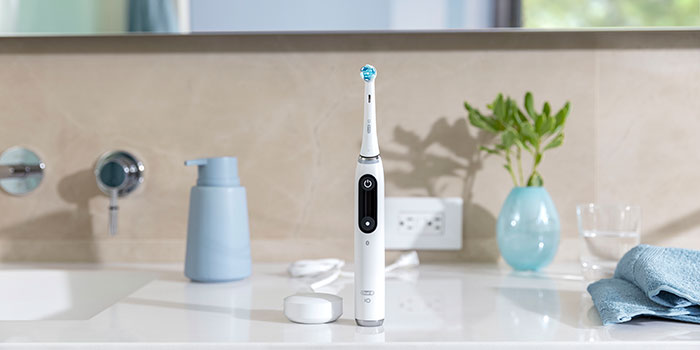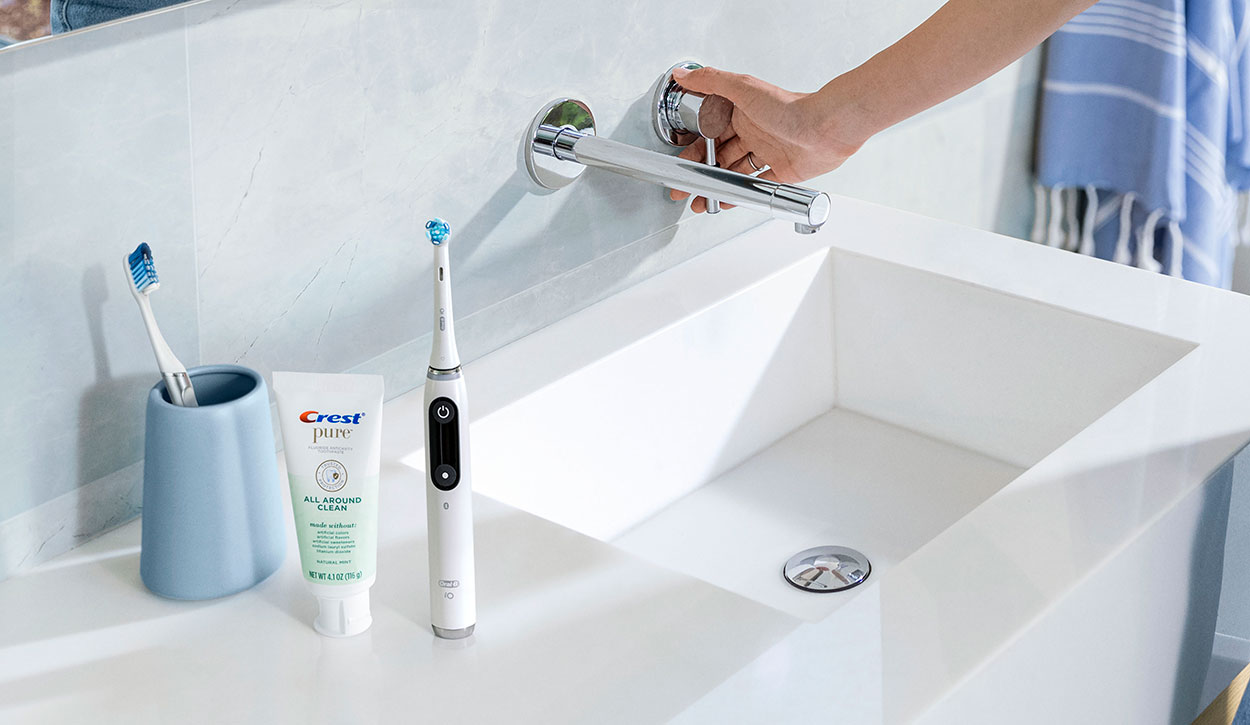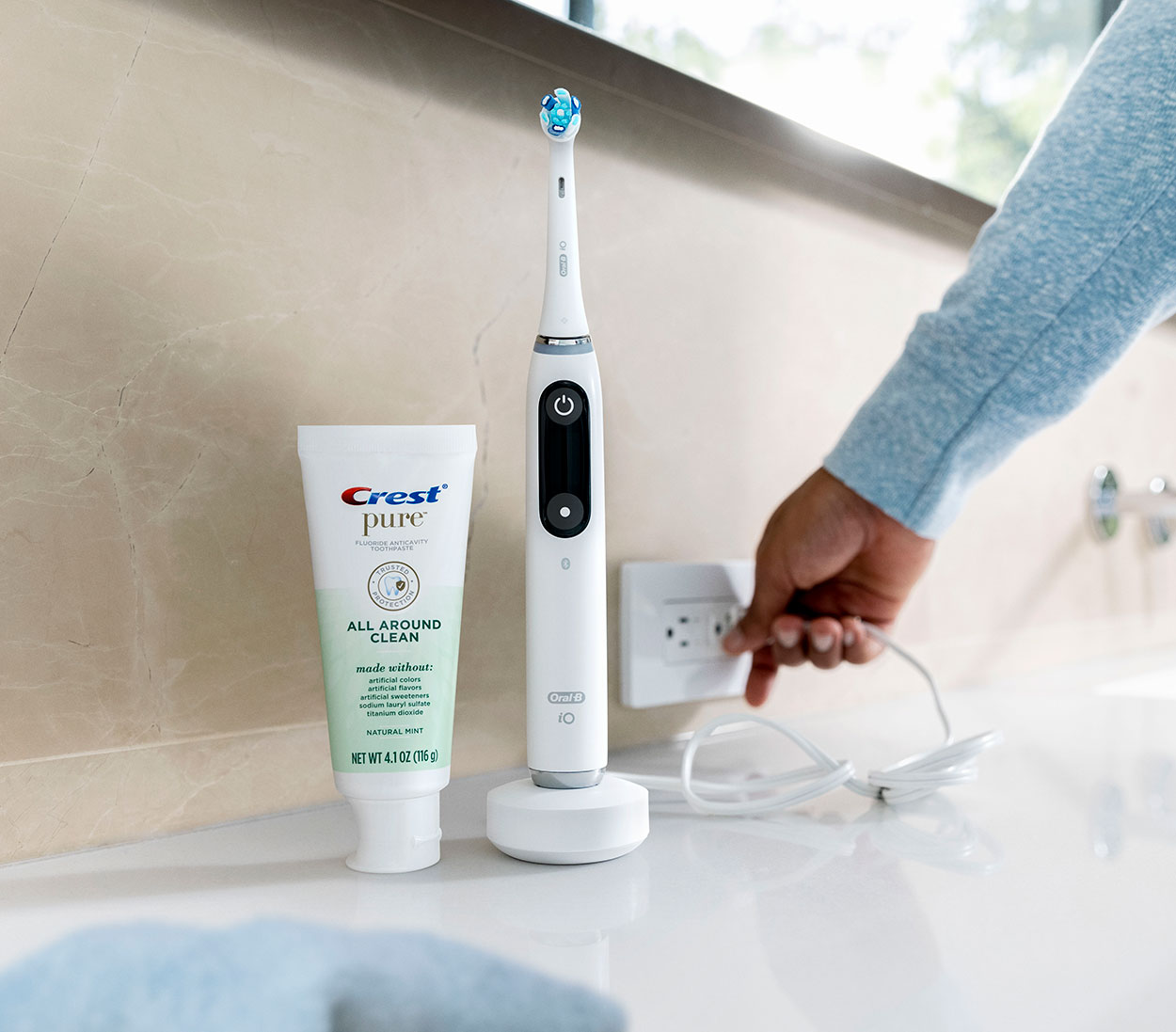ESTABLISH A HEALTHY TOOTHBRUSHING ROUTINE WITH ORAL-B | ORAL-B

Procter & Gamble (P&G) brands Oral-B and Crest conducted a survey of nearly 3,000 people in the United States and Western Europe to better understand oral care habits today. The data resulted in several tips that can help people improve their personal health and reduce the environmental impact of their oral care routine.
- Brush Twice Daily: The World Health Organization recommends brushing your teeth twice a day with fluoride toothpaste for two minutes to help reduce plaque bacteria and tartar buildup, cavities, and gum issues. People surveyed who skip brushing claim it’s because they fell asleep (27%), were too tired (24%) or felt too lazy (23%).
- Turn Off the Tap: Beyond personal health benefits, simple choices people make during their oral care routine can help reduce their environmental footprint. Almost 1 in 4 (24%) respondents admit to leaving the tap running while brushing their teeth and more than 1 in 2 (60%) underestimate the amount of water wasted every minute it is on. Turning off the tap can save up to 8 gallons of water a day. Even better, people can consume less energy by opting for cold water.

- Unplug the Charger: Nearly half of respondents (47%) who use an electric toothbrush claim to always or sometimes leave their charger plugged in and 31% keep the brush on the charger all the time. Most appliances continue to use electricity as long as they are plugged in, so remember to unplug the base charger when you are not charging your electric toothbrush.

- Check for Recyclability: Personal care items may be recyclable, and people can check product and packaging labels to be sure. However, 19% of respondents admit to rarely or never recycling bathroom products or packaging. The reasons? Nearly a third (30%) never thought to, 22% had no idea how to recycle the items and 19% claim to not have enough to recycle. Every action makes a difference and those individual habits add up to reduce landfill waste.

Oral-B and Crest are working to educate and enable 2 billion people to adopt healthy oral care habits by 2030, reducing their environmental footprint and enabling responsible consumption along the way. The effort is part of the " Healthy Smiles, Healthy Lives" strategy that seeks to advance healthy oral care habits to transform people's health while reducing impact on our communities. The brands will focus on education and advocacy; enabling access to dental products and services; and innovation that makes the adoption of healthy habits enjoyable.
Data is from an online survey fielded from Oct. 7 to 15, 2020 with 2,905 general-population respondents (1,093 United States, 647 France, 465 United Kingdom, 353 Germany, and 347 Italy). Results were weighted by country, age and gender.
